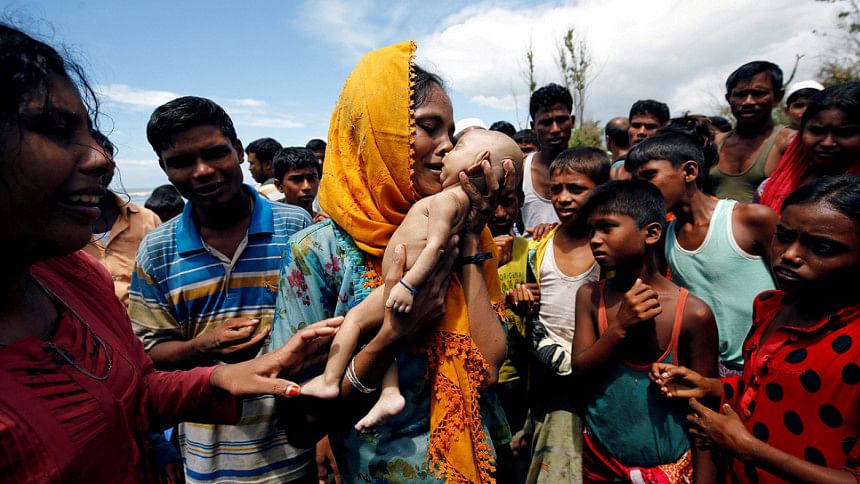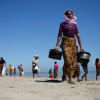Rohingya influx: IOM seeks coordinated response

International Organization for Migration (IOM) is seeking a coordinated humanitarian response to the massive inflow of Rohingyas arriving in Cox's Bazar.
"To respond to this inflow, which is unprecedented in terms of speed and numbers, we need to ensure a coordinated response among the growing number of agencies bringing lifesaving aid to the thousands of people flooding into Cox's Bazar," said IOM Director of Operations and Emergencies Mohammed Abdiker.
The IOM call comes when there are various organisations and communities going to the Rohingya settlements to help them with food, clothes and medicines, while there are allegations of a lack of coordination among all agencies despite the district administration's call.
"In order to help the most vulnerable, we have to identify who needs what- where, and which agency can provide it. This is critical if we are to get help to the people who need it most, as fast as possible."
Estimated new arrivals have reached 391,000 and there is no sign of the flow of people drying up, as smoke from burning villages in Myanmar's North Rakhine State remains clearly visible from Cox's Bazar, it said in a statement on Thursday.
Thousands of the new arrivals are now walking along clogged roads towards a 1,500-acre settlement site demarcated by Bangladesh government in between two of the biggest makeshift settlements of Kutupalong and Balukhali in Ukhia.
The site will help aid agencies to access over 200,000 new arrivals currently camping or living in the open on waste ground, hillsides or by the side of the road.
In these so-called spontaneous settlements, people who arrive from Myanmar exhausted, hungry and often traumatised by the violence that they have seen, are living in terrible conditions, often with no shelter, no food, and no access to clean water or basic services.
Bangladesh government, foreign governments, including Turkey, Indonesia and Malaysia, and aid agencies on the ground are now racing against the clock to bring in the lifesaving food, shelter, water, sanitation, health and other services that the new arrivals need.
Within the framework of Bangladesh's National Strategy on Myanmar Refugees and Undocumented Myanmar Nationals (UMNs) in Bangladesh, IOM has been coordinating the humanitarian assistance to the undocumented Rohingyas in Cox's Bazar since 2014.

 For all latest news, follow The Daily Star's Google News channel.
For all latest news, follow The Daily Star's Google News channel. 









Comments